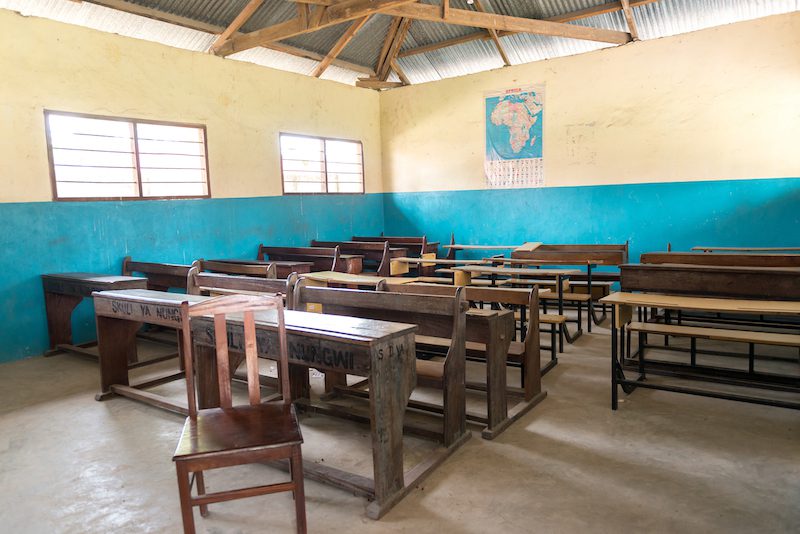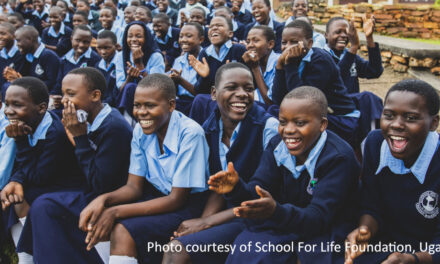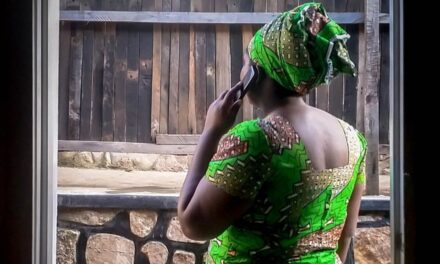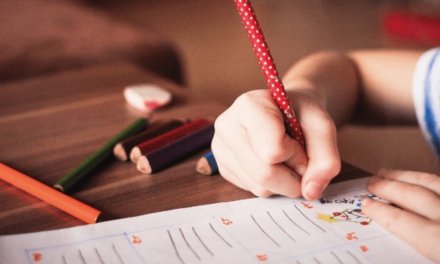This blog was written by Dawit Tibebu Tiruneh, Research Associate at the REAL Centre, University of Cambridge and member of the RISE Ethiopia research programme. This blog is part of a series reflecting on the impacts of the current COVID-19 pandemic on research work on international education and development. It has also been published on the RISE programme blog, the University of Cambridge Faculty of Education website and Cambridge University Press.
There are major challenges around equitable access to learning for all children during the COVID-19 crisis. Most governments have now temporarily closed schools and universities to slow the spread of the virus. As of the first week of April 2020, UNESCO reported that 1.6 billion learners (nearly 9 out of 10 children) are out of school worldwide due to the school closures. In Africa, almost all the school children and university students are affected by the pandemic as of mid-March 2020. In Ethiopia, for example, schools have been closed from 16 March 2020, and nearly 25 million pre-primary, primary, secondary, and tertiary-level learners are staying at home.
It is too early to fully understand how the COVID-19 school closures are affecting particularly disadvantaged children in low-income countries such as Ethiopia, but there are signs suggesting that it could have a lasting impact on increasing inequality. My observation over the past month in Ethiopia is that the less wealthy and digitally-illiterate families are, the further their children are left behind. There were already pre-COVID-19 inequalities in access to quality education between children in urban and rural localities, and children from parents with higher and lower socio-economic status. My fear is that COVID-19 school closures could further increase the inequalities between the advantaged and disadvantaged children.
The Ministry of Education in Ethiopia has been encouraging schools and parents to help all children continue to learn from home through remote learning. However, there are limited mechanisms in place to ensure that ALL children can continue to learn from home. Home-schooling is particularly challenging in low-income countries like Ethiopia because many parents have not themselves been to school and there is a lack of the necessary infrastructure to support remote learning.
What are the attempts to support home-schooling in Ethiopia?
Because the great majority of students in Ethiopia lack computers and Internet access, the Ministry of Education has recently advised primary school children to follow radio lessons, and secondary school children to follow television lessons that can be accessed from home through satellite television. Although radio and television lessons may work for some children in the urban areas, there is no clear evidence on how many parents in the rural areas have access to radios and satellite television. Given that more than 80% of the Ethiopian population lives in the rural areas with limited or no access to electricity, it is least likely that radio and television lessons would reach all primary and secondary school children in the rural areas. Even when radio and television lessons reach some of the rural children, it is unlikely that those children get sufficient support from their parents at home because their parents have never been to school.
Most private schools in urban localities are finding temporary solutions to continue teaching their students from a distance by uploading reading materials and assignments via Google Classroom and e-mail, and by using some social media platforms, such as WhatsApp and Telegram. Many private schools in major urban cities of Ethiopia such as Addis Ababa, Adama, Bahir Dar, Hawasa, and Mekelle are sending learning materials directly to parents’ WhatsApp or Telegram accounts, and the parents are helping their children to access the learning materials from their phones. On the contrary, there are no efforts by the public schools in urban and rural areas to keep their students learning from home. It is understandable that most of the public schoolteachers and parents have limited or no access to Internet connectivity, but most importantly the teachers lack the preparedness to work in such unprecedented circumstances. It is also worrying that we haven’t yet heard from schools and local governments in Ethiopia on their planning to address the diverse needs of children with disabilities during the school closures. We have many primary and secondary school children in Ethiopia with special educational needs, who may not benefit equally from the radio and television lessons.
How should schools and local governments respond during the COVID-19 crisis?
Public schools in urban areas need to devise strategies to try to reach as many children as possible during the school closures. I understand that public schools will have difficulties reaching all their students from a distance due to logistical and financial challenges, but the choice can’t be to do nothing, as this may worsen the existing inequalities between the rich and the poor. The local governments and school heads should try to establish communication lines between public school teachers and parents in order to follow up closely as children try to learn from home, and to offer some advice on appropriate hygiene practices and social distancing.
In addition, public schools in both rural and urban areas need some support at this critical time from the local governments, universities in their localities, and other ongoing national programmes such as Productive Safety Net and One WaSH National programme. Given that public school teachers, like everyone else, are now living in a stressful situation due to the pandemic, professionals in local universities need to provide them with some training on how to support learning of their students from home in these difficult times. Unfortunately, Ethiopia does not have the infrastructure in place to support online learning, but it is possible to consider low-tech approaches. Because nearly all the children may have their textbooks with them at home, teachers could send guiding questions and additional reading materials that may encourage the most marginalized children to read their textbooks. Teachers could also continuously contact parents through phone and enquire how their children are coping with the radio and television lessons and the kind of support parents are trying to offer to their children.
It is also vital to emphasize that many disadvantaged children such as girls from low income families and from rural areas can be at a higher risk of sexual exploitation, early marriage and forced labour. I’m also afraid that both boys and girls in most rural areas may be forced to be fully engaged during the school closures to support their parents in farming and livestock herding. School teachers in collaboration with district and kebele education officers need to keep close contact with parents to make sure that children are safe at home during the school closures and trying to learn as much as possible. I hope such efforts can help address the challenges related to the equitable provision of education for all children during the present COVID-19 crisis.
How should the school system respond to the post-COVID-19 period?
- Introducing evidence-based interventions to recover lost learning
Because of the lack of required support during the COVID-19 school closures, it could take a very long time for children from low-income and illiterate parents to fully recover their lost learning when they are back to school. The school system should therefore design and implement some evidence-based interventions that aim to facilitate the recovery of the lost learning when schools reopen. For example, schools may design some catch-up courses particularly for those disadvantaged children.
- Putting strategies in place to ensure children return to school when they reopen
Children from low-income families are at a double disadvantage during the COVID-19 school closures: interruption to class time and economic uncertainty. There is some new evidence coming out that the economic impact of COVID-19 in sub-Saharan Africa is going to be devastating. It is highly likely that some children from low-income parents could decide to work as daily labourers to support their families economically and may never return to school when schools reopen. Parents from rural localities may be reluctant to send their children back to school because they may prefer their children to continue to support them in farming and livestock herding. It is necessary to trace those children who do not return to school and devise some strategies to encourage parents to send their children back to school.
- Preparing teachers, students and parents in advance of future crises
What the current pandemic may have taught school officials, teachers and parents in least income countries is that establishing communication lines between teachers and parents before crisis and maintaining them during this type of crisis is key to support the learning of children from home. I informally asked a few teachers in public schools in Bahir Dar and Addis Ababa whether they frequently communicate with parents before the COVID-19 crisis. Unlike private schools, public schools don’t seem to communicate frequently with parents. This needs to be improved. Besides, the education system needs to devise strategies – before crisis – on how to prepare teachers and students to respond effectively and efficiently during a time of crisis. Teachers may not teach all the time in a face-to-face classroom environment; students may not learn in the ‘traditional’ classroom all the time. When the COVID-19 pandemic is over, the education system needs to prepare everyone to be flexible and adapt quickly to various learning modalities during a time of crisis. The global community may need to support the Ethiopian Ministry of Education and other local educational institutions in their efforts to prepare schools, teachers, students, and parents for future crisis.






Thanks for expressing what I believe to be issues many countries will be dealing with in the new world order. In Malawi we are trying to look at ways we can use technology to reach the most marginalized learners. The government here has just approved a plan to use GPE funding to support providing pre loaded, solar charged tablets for 10,000 households that cannot be reached through radio and TV
It is a small start but could be very effective
Thank you, Kate. The plan to use pre-loaded, solar charged tablets in Malawi to reach the most marginalized learners is really a great start. It would be great if you could share us some updates later regarding the actual implementation and challenges faced. I’m not sure whether the Ethiopian government is planning to do the same in collaboration with GPE, but if the Malawi’s case is successful, Ethiopian government might consider it. Thanks again for sharing the Malawi experience.
Very interesting and helpful article and comment. Kate, could you tell us whether the pre-loaded materials are Malawian textbooks and what ‘wrap-around’ they may have to help students and their families to use them when in isolation?
Thank you, Dawit. This is really an insightful blog for all stakeholders (governments at all levels, parents, teachers, schools, education sector players and supporters, and citizens) to think critically on how to mitigate the gravity of the problem in low-income countries such as Ethiopia. At this time where the world advocate for the continuity of education through digital means, a new report from UNESCO shows 89% of children in Sub-Saharan Africa do not have access to computers at home and 82% lack internet access which provides additional evidence for your observations. I think there should be a mass mobilization at the national level on how to address the problem and share responsibilities among stakeholders. The mass media, particularly Radio, can play a role as it reaches as many people in rural areas even to those with no access to electricity. There are also some 50 community radios in Ethiopia in areas where mainstream radio signals may not reach that serve communities as the only source of information. These channels could be mobilized to raise awareness on how to keep children continue learning, motivate children to study their textbooks at home, encourage parents to provide support or allow children to continue learning and send children to school when schools reopened. University students who are also now with their parents should support the learning of children together with their own education.
The new UNESCO report “Startling digital divides in distance learning emerge” is here https://t.co/JJ3L4otYSj?amp=1
Thanks so much, Aderaw! Very useful points. I fully agree that the community radios can be immediately and effectively used to support home-learning of the most marginalized students. Hopefully UNESCO Ethiopia is planning to collaborate with the community radio broadcasters and the MoE? I’m also glad that you pointed out an interesting idea – engaging university students to support the learning of children in their communities. Thanks also for sharing with us the new UNESCO report.
You raised very crucial points, Dave (Dawit) . This should be echoed as widely as possible. We have truly been experiencing these challenges for the last one month+, but we seem to fail to recognize them as existing reality as you have put it evidently. In our case, not only actually children from less wealthy and less digitally-illiterate families left behind, but even the wealthy and literate ones. All may have to do with the poor infrastructure we have as a nation, as well as our mindset (mindset here can be explained as our fixed state of mind, our indifference and reluctance to cope with the new normal. Most important of all for me as we talk of learning from home at this difficult time is the issue children with disabilities – ‘very worrying’, I strongly agree with you Dave. Big thanks for calling this to our attention, to my attention in particular (as I claim myself as an advocate for Education for All, Education for Children with disabilities, I haven’t been as active advocate as I wanted to be though (Here goes my FB page: http://www.facebook.com/education4CWDsEthiopia)
The issue of ensuring children return to school when they reopen is another interesting point, as critical as other points you have made. It is customary in many rural villages at the very beginning of the year, government assigned folks – it could be from education bureaus/offices, or local admin seats, have to fan out to villages, walking door-to-door to encourage and even urge families to send their children to school. This may need to be done now again. Otherwise, dropout rate will escalate. Many children may not show up particularly in chronically food insecure areas of the country. As you said children they leave their surroundings in search of job as daily laborer for food or else. The school children I happened to visit and talked to in Gidan, Habru, and the highland parts of Gubalafto and Kobo woredas of North-Wollo zone during my quick review of the Save the Children’s school-feeding program in 2012 have just crossed my mind. This below is one of the primary school directors shared with me.
“…In our area migration of people to other places in search of job and food is a common incident. This includes school children. In our Kebele, we assessed and kept a record of names of students who were with us last school year, and were supposed to be with us this year as well. It is sad, many haven’t showed up this year. The majority of them are from grade 5-8. We walked around their villages and asked their parents why they disappeared (didn’t come to school). Most said they have gone to other places to work and make money for the family’s food.”
Local government authorities should be well prepared for what you said – ensuring children return to school when they reopen, and work towards bringing them back. If we fail to do this when reopen, we will fail big – having hundreds of thousands of children left behind. Imagine what this means to the existing inequality the country experiences.
Kenaw, thank you so much for your very useful and informative insights. You have really reinforced the ideas raised in the blog with your rich field experiences. Let’s hope that some actual work starts soon focusing on ALL children in Ethiopia. Glad to hear that you have been an advocate for education for all, particularly for children with disabilities. FYI. I have just started following your Facebook page on education for children with disabilities.
It is an interesting reflection Dave! I enjoyed reading it and I agree with you that… “the choice can’t be to do nothing”.
In a situation where authorities in the education sector are not seen while taking immediate actions, such a perceptive observation and reflection will provoke discussions leading to both proactive and reactive measures.
Local authorities and school heads seem to be waiting for directions from above. I think the top-down approach seems to be the rule of the day, not only in the education sector but also in other areas too. It is, therefore, better if the recommendations are primarily for higher-level authorities and/or policymakers. I hope they will buy-in your ideas.
Thank you, Anteneh! Yes, I do agree that the support of authorities at the top level is necessary to implement those recommendations. I hope this blog and all the reflections by committed readers like yourself will initiate a discussion among all the stakeholders on how to systematically respond to the school closures in Ethiopia. Thank you!
Dawit Tibebu, I read the full article. It is wonderful and timely. All the concerns that you stated are also that of the majority of parents including me. Let alone the rural and pastoralist area schools, inevitable gaps could be seen even in the urban schools. For instance, for my kids at G3 and G5 in one of private schools in Bahir Dar, the school uses telegram channel for learning materials. However, the members that joined the channel were less than 800 out of which actual users and multiple users are not identified. Moreover, parents who can guide their kids for all subject matters are very rare even at urban schools. The TV and radio programs by MOE are just broadcasting for granted . You know in almost all Ethiopian households there is only one tv set at which every member of the family is watching news and entertain at it. So, it is very unlikely students can follow the subject matter streaming from there with full attention. It can no more than be a supplementary material as it can be continuously destructed by any family member there. All these might happen because our government was not preparing schools, teachers and parents earlier, so that it can be hard to maintain schools in an unprecedented way.
Thank you so much for your very helpful insight, Zinaye. I’m glad that you enjoyed reading the blog. It’s great that you shared with us your concerns (based on your experience) on the potential limitations of the radio and satellite TV lessons. Let’s hope that all our inputs will help to revise and improve the approaches employed by the MoE and other stakeholders to support children’s learning at home. Again, thank you!
Dear Dawit,
Thank you for your insightful reflection on the context of education in Ethiopia at the time of the crises. Just to mention some of your worries, electricity, connectivity, teachers and school administrators skills and communication strategies were what you have mentioned as sources of challenges to implement different strategies in providing education at this time. I agree these were challenges that had been acknowledged by many who are in the system. To me, these challenges could be managed whenever the need arises. Solar technologies can be integrated into the schools, the wordage and school net connectivity scheme can be expanded, teachers and school communities can be trained so that they can be ready to face any forms of challenge that would come. The basic problem behind all these, I stand to be corrected, is the place education has in the Ethiopian overall socioeconomic structure. We expect professionals in every sector without having professional teachers who could assists in the professional development, we expect quality school and quality education where we don’t have quality system and educational leadership and management. I think here after, the COVID have shown us that things are not going to continue as they used to be. Thus, Ethiopian Ministry of Education and all development partners if they all dream for narrowing the inequities in the education system, first have to use this item as an opportunity to rethink about how the system should work. The system has to be re-engineered so that it should be responsive for any sort of shock. This has to begin from stating the philosophy of education and why education has become a public good in the nation. Second, time is an important element things are changing in a very fast speed and the MOE should not take time to either change or develop new thing too long, for instance the roadmap took more than three year and some of the issues mentioned there are already outdated and others are not considering the current situation. Third, aspiring quality education without quality school community and leadership is just a mare dream, thus MOE has to use this school closure as an opportunity to work on the quality of the teachers and school leadership. Fourth, the pandemic has made educational experts to re define education objectives, methods and even assessment as a result MOE has to also revisit the educational objectives , methods and assessment in line with the global and national practices and demands. In the mean time other sectors including the employers should also area their concern in the change and value of education. In this regard, MOE has to work with them to support it in providing the necessary infrastructures for education. Above all, last but not least MOE has to work to make the education most valuable asset to the community and the parents. Then Parents will be par t of the system and can contribute to the betterment of it. Otherwise just telling the at the parents are not educated and may not support the education of their children is an old approach which has been many times disproved. A good example is most of us who are still crying over the situation are who came from such parents who did support our effort a lot. Thus MOE has to make the its communication and role clear and has to craft from the demands of the community. Now the community knows what is relevant to it and doesn’t need any one who tells him. Rather the community wants to participate in the effort so that it can support the implementation. For instance education through the radio has been there and now it being used as a means to keep children attached to their education now, I am afraid there is no panned effort and new activity. There is no difference between the radio programs we had before. So the community considers that it is the usual game. Rather the MOE has to develop new communication strategies to engage all professionals so that everybody can contribute. In addition MOE has to develop an intervention plan and communicate to the community.
To be precise, there is a need to look into new ways of doing things.- Education system management, teacher training, and in school education modalities have to be revolutionized.
Dear Fekadu, thank you so much for your detailed and insightful reflections! I fully agree with you that it is time for all the stakeholders in education to really look into some innovative and efficient ways of doing things. Thank you!
Dear Dawit,
I read your woinderfull by-line and gave the full read it deserves. Realy it is very insightful, Remarkable and elonquent blog. The school closure of Ethiopia in age of the Coronovirus outbreak is putting the disadvantaged in to the dustbin and where they will never ever catch up the advantaged ones here in this 100 Million Complex Nations and Nationalities Country.
I wish if the Government look this in to special and kind eye and browse all possible options that is not making the poor blind from thier FULL FUTURE and fix this before it is too late.
Thank you Brother for the effort of this informative piece.
Abdiaziz Ali, Educationist, Prolific Writer Award Winning Campaigner and Education Advocate. I wrote more then 50 Articles about Education and things that affects it in Ethiopia and Africa. I am very much based in Jigjiga, Ethiopia.
https://twitter.com/AbdiazizAlih/status/1255967119323299846?s=19
Dear Abdiaziz, thank you so much for your kind words and I’m glad that you’ve found the blog relevant. I hope education officers at Jigjiga and around will consider some of the suggestions/recommendations indicated in the blog. Thank you!
Dear Dawit,
You said it well. Let alone for the students, access for the teachers is very minimal. It is really an issue to be focused on that MoE has to be supported. The solar tablets are very impressive, however, solar for light is a priority in most rural areas in Ethiopia. In the future, probably and hopefully, getting electriccity or solar powers might materialize. For me, the priority is the skilled teacher who can be willing and open to first educate herself to go inline with whatever is demanded of her be it because of crisis or technological shift/advancement, or job market demands, etc. What is number one for me is the teacher preparation. How could we work towards that? How can we join hands? Do you know that teachers shy away when they are asked to teach lessons using technology? Do you know that many teachers still cannot prepare power point presentations? I can give many examples. So teacher traaining has to be well thought of-starts from the entry level-job satisfaction.
Dear Almaz, thank you! I fully agree with you that well-designed teacher training programs are key for effective technology-based teaching. Teachers really need support all the time, and especially during crisis like COVID-19. I tend to believe that many teachers are willing to try to help their students as long as we support and prepare them for crisis like this. Thank you again for your useful comments.
Dear Dawit,
This is a really insightful comments. Many other African countries share in the same situation. I hope that education stakeholders will not forget the lessons learnt during the pandemic and put in the necessary plans to ensure that learners are able to learn both at home and in school. Additionally, curriculum should be designed in such away that learners are motivated to learn both at home and in school removing the over dependence on teachers and classrooms for learning.
Dear Domnick, Thanks a lot for taking the time to read the blog and share with us your helpful thoughts.